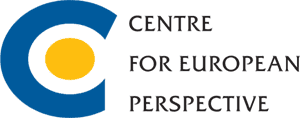CEP išče nove študentske okrepitve!
Sektor Mednarodnega razvojnega sodelovanja CEP se ukvarja z vodenjem projektov v državah Zahodnega Balkana in evropske soseščine. Naše aktivnosti so osredotočene na reforme v okviru predpristopnega procesa k EU, na povojno obnovo in trajnostni razvoj, kjer gre za opolnomočenje državnih in tudi lokalnih oblasti, nevladnih organizacij, mladih ter drugih družbenih skupin. Sodelujemo z ostalimi slovenskimi ustanovami – izvajalkami razvojne pomoči, EU institucijami, multilateralnimi in mednarodnimi organizacijami ter veleposlaništvi RS.
Tvoje naloge bodo obsegale:
- pomoč pri pripravi in izvedbi mednarodnih dogodkov;
- podporo pri pripravi poročil, analiz, projektnih predlogov in prispevkov za javnosti,
- podpora vodji sektorja pri načrtovanju, koordinaciji, pripravi zahtevnih pisnih prispevkov;
- soustvarjanje projektov, ki izpolnjujejo potrebe držav v razvoju.
Iščemo komunikativno, samoiniciativno, motivirano, zagnano osebo z željo po vsakodnevnem učenju vsebin in osvajanju novih veščin.
Zaželeno je:
- odlično znanje angleškega jezika, vključno s pisanjem zahtevnih besedil (razgovor bo vključeval kratek pisni test znanja),
- napredno znanje dela s programi MS Office,
- poznavanje družbenih omrežij,
- timska naravnanost, zanesljivost, organizacija časa in sposobnost postavljanja prioritet;
- odlične komunikacijske sposobnosti.
Ker smo locirani na obrobju Ljubljane na gradu Jable, je zaželeno, da se do nas lahko pripelješ z lastnim prevozom.
Prednost bodo imeli študenti/ke 2. stopnje ali absolventi/ke študija družboslovnih smeri (mednarodnih odnosov, evropskih študij, obramboslovja, varnostnih ved in podobnih smeri):
- z izkušnjami z delom v mednarodnem okolju,
- s poznavanjem projektnega menedžmenta,
- z znanjem enega od jezikov ciljnih regij (B/C/M/S ali ukrajinščine)
- s poznavanjem relevantnih politik EU in ciljnih regij.
Postani del mladega in zagnanega kolektiva, kjer nudimo zanimivo, raznoliko in fleksibilno delo, odprto izmenjavo mnenj, veliko priložnosti za učenje ter udejstvovanje v mednarodnem okolju.
Če te predstavljeno delo zanima in se vidiš v naši ekipi, pošlji svoj življenjepis in motivacijsko pismo na elektronski naslov [email protected], v katerem nam poveš, zakaj si želiš delati pri nas.
Rok za prijavo je 22. 10. 2024. Upoštevane bodo vse prijave, ki bodo pravočasno prispele na zgoraj navedeni naslov. Razpis najdeš tudi na študentskem servisu – tukaj.






